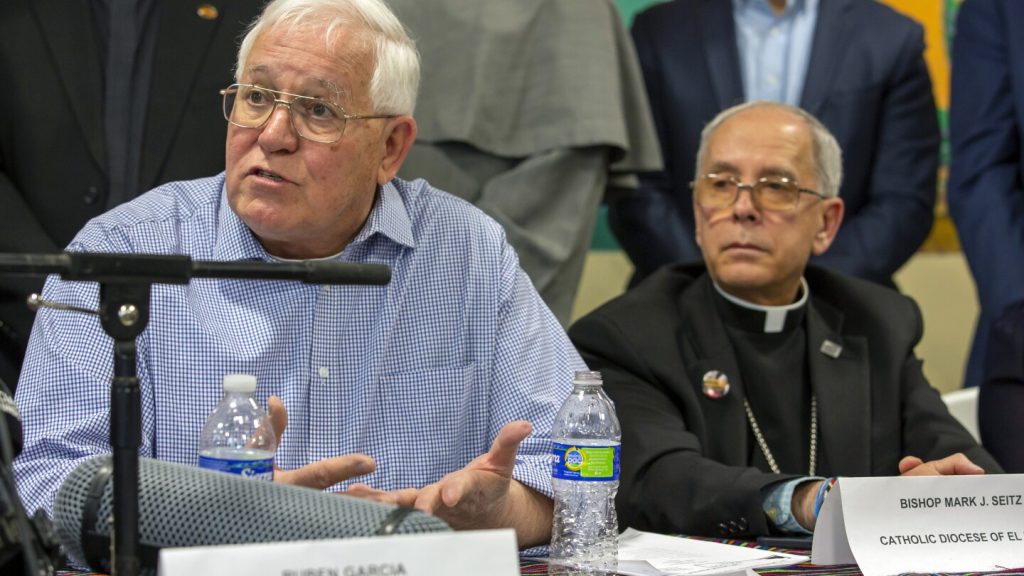Government officials would be infringing on religious freedom if they were to restrict the Catholic Church’s work serving migrants along the U.S.-Mexico border, according to Archbishop Timothy Broglio, president of the U.S. Conference of Catholic Bishops. Broglio addressed this issue at a USCCB meeting in Louisville, where migration issues, including long wait times for religious worker visas, were discussed. He expressed concerns about recent government targeting of faith-based border work, such as the Texas attorney general’s attempts to shutdown a Catholic nonprofit that has operated migrant shelters for decades.
Bishop Mark Seitz of El Paso, Texas, who chairs the USCCB’s committee on migration, also shared worries about the potential restriction of religious freedom affecting their ability to serve migrants. The church leaders overseeing dioceses along the border are trying to balance adhering to the Gospel while also respecting the law, amidst concerns about election-year politics hindering progress on migration issues. Broglio emphasized the importance of continuing efforts to improve conditions in countries of origin to reduce the necessity for migration, citing the crackdown on the Catholic Church in Nicaragua that has led clergy to flee the country.
During the USCCB meeting, Seitz addressed the political impasse in Congress on immigration reform and announced a new educational program on how Catholic social teachings are connected to caring for migrants. He highlighted the division among Catholics and Christian voters regarding approaches to the migration crisis, as well as the misinformation and accusations against Catholic ministries involved in serving migrants. Seitz also raised concerns about the lengthy wait times for religious worker visas and renewals, impacting many priests in the U.S. and leaving some parishes without pastors.
Seitz shared updates on discussions with White House and government departments regarding expected regulations to ease religious worker visa wait times. He urged bishops to continue advocating for reforms and emphasized the collective voice of the bishops as crucial in the current situation. President Joe Biden’s recent directive to restrict asylum at the U.S.-Mexico border has added uncertainty for migrants and those assisting them, with concerns about the impact on their work. Seitz highlighted the release of hundreds of migrants into Catholic shelters in one day and expressed concerns about the limited options for migrants if they are turned back.
The ongoing collaboration between faith organizations and government agencies to address migration issues, including the care of migrants along the U.S.-Mexico border, remains a complex and challenging endeavor. Leaders from the Catholic Church are navigating the intersection of religious freedom, public policy, and humanitarian efforts to ensure the continued provision of services to those in need. As discussions continue and potential regulatory changes are anticipated, the commitment to advocating for reforms and supporting migrants remains central to the mission of the Church and its leaders.


